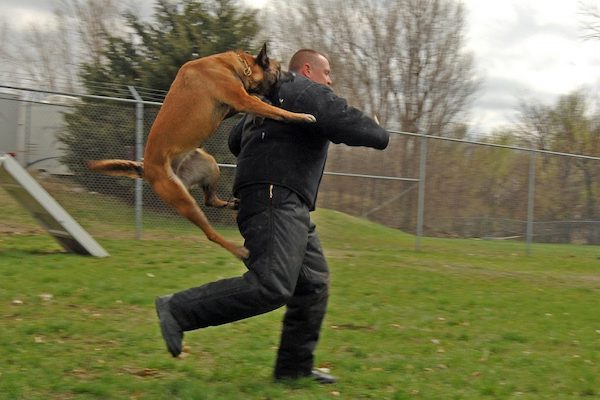Many times, “man’s best friend’ has sent people to the hospital to treat injuries and trauma. If you are a victim of a dog bite, you have the right to sue its owner to cover the cost of any expenses spent or lost as a result of the bite.
Dog bite statutes vary by state, and in this article, we’ll be discussing the most important dog bite statutes.

Key Dog Bite Rules
Here are a few of the important dog bite statutes enacted in various regions of the US:
One Bite Rule
The “one-bite rule” is a historical common law principle applied in some dog bite cases across the US. This rule essentially states that a dog owner is only liable for injuries caused by a bite if the dog has a previous history of biting. In simpler terms, a dog gets a “free bite” before the owner is considered negligent.
However, the one-bite rule is gradually being phased out and has several significant exceptions. Courts may consider factors like the breed’s known aggression, the owner’s knowledge of the dog’s behavior, and the circumstances of the bite (e.g., provocation by the victim).
While it can offer some protection for dog owners in specific situations, the one-bite rule is becoming less relevant and doesn’t guarantee immunity from liability in dog bite cases.
Strict Liability
This principle removes the requirement of a dog’s prior bite history and holds the owner liable for injuries caused by their dog, regardless of the dog’s past behavior. The focus shifts to whether the victim was legally on the property and didn’t provoke the dog.
Negligent Care
Nobody wants to think about their pet getting hurt. But accidents happen, and sometimes it boils down to whether proper care was provided. This is where “negligent care” comes in. Think of it as not taking the necessary steps to keep your furry friend safe and healthy.
Here are some situations that might fall under negligent care:
-
- Skipping essential vet checkups: Just like us, pets need regular checkups to ensure their overall health. Skipping these appointments could mean missing early signs of illness or potential problems.
- Failing to provide proper nutrition: We all love spoiling our pets with treats, but a balanced diet is crucial. Feeding your pet an unhealthy diet or neglecting their nutritional needs can lead to health complications.
- Not keeping your pet up-to-date on vaccinations: Vaccinations are a shield against nasty diseases. Neglecting vaccinations puts your pet at risk of serious illnesses.
- Ignoring signs of illness: Does your pet seem off? Restless, not eating, or throwing up? Ignoring these warning signs and not seeking veterinary treatment could worsen the situation.
Dangerous Dog Laws

Dangerous dog laws exist to protect people and pets from animals deemed a threat. These laws vary by state and municipality, but generally, they target dogs with a history of biting, attacking, or displaying threatening behavior.
Owners might be required to keep their designated dangerous dogs on a leash at all times in public spaces and potentially use a muzzle for added safety.
Some regions require owners of dangerous dogs to register their pets with local authorities. Additionally, specific insurance coverage for potential bite-related injuries might be mandatory.
Dangerous dog laws might mandate secure enclosures for these animals, ensuring they can’t escape and pose a threat to the community.
Quarantine Laws
Ever wonder why your vet asks about your dog’s travel history? Quarantine laws are crucial in preventing the spread of contagious diseases among canine populations. These laws are typically enforced by animal control agencies and might involve:
-
- Vaccinations: Quarantine procedures often confirm that a dog is up-to-date on essential vaccinations to prevent illnesses like rabies, distemper, and parvovirus.
- Import/Export Regulations: Traveling with your dog across state lines or internationally often requires adhering to specific quarantine protocols. These might involve blood tests, health certificates, and potential isolation periods to ensure the animal isn’t carrying any diseases.
- Bite Incidents: If your dog bites another animal, quarantine might be necessary to monitor for signs of illness that could have been transmitted.
Wrapping Up
As soon as you’re attacked by a dog, seek medical care first, then proceed to hire an attorney if you wish to sue.
Read More:

